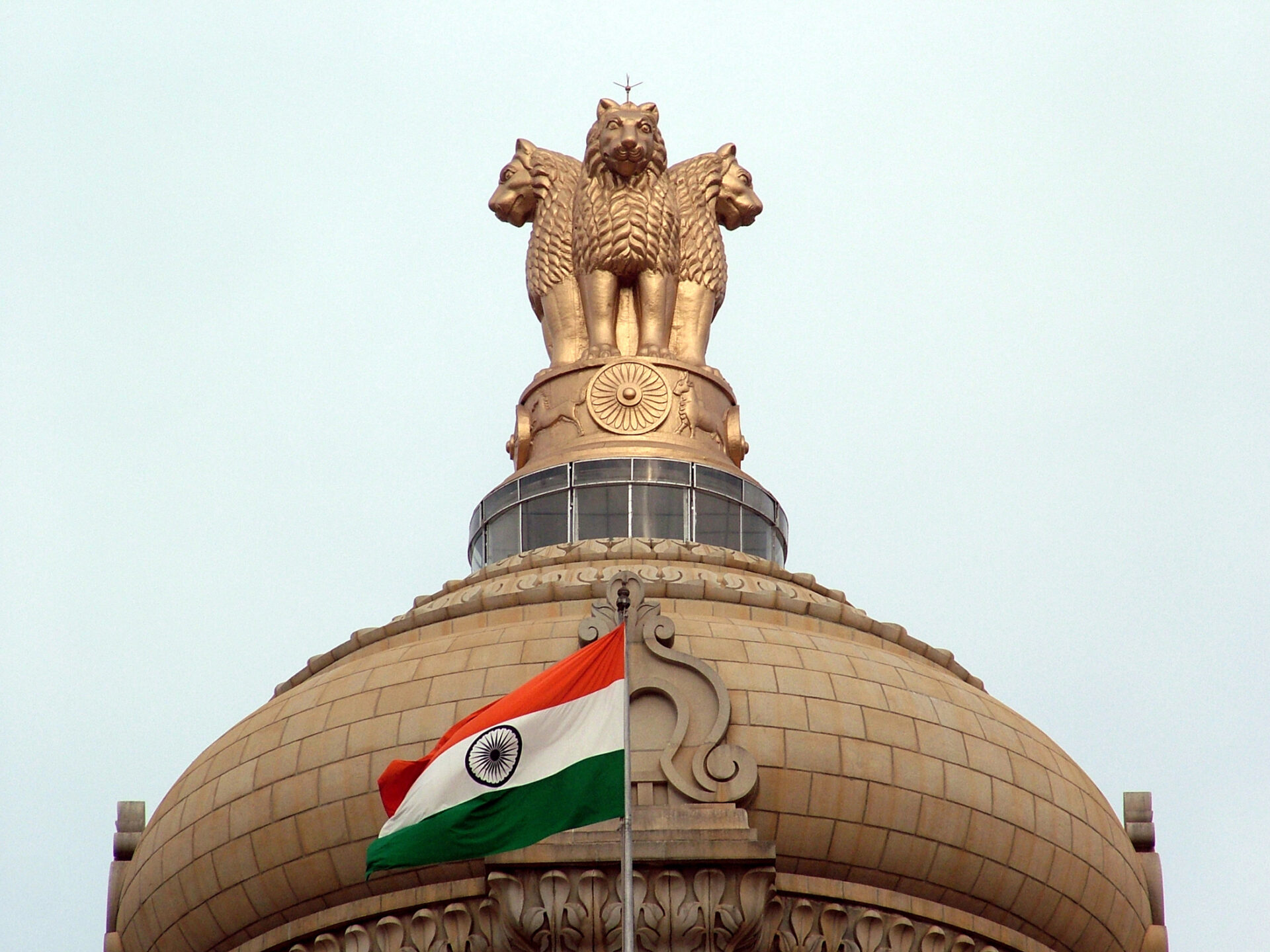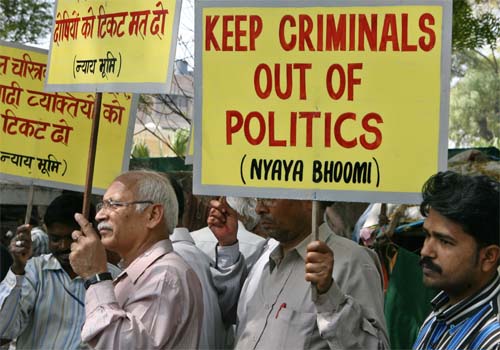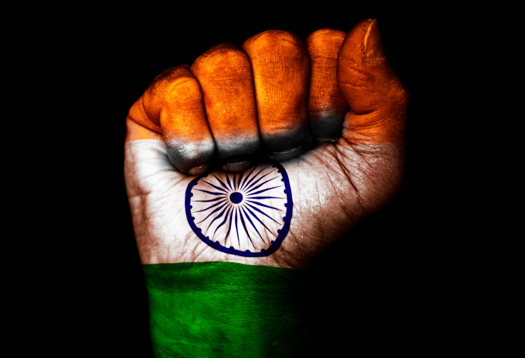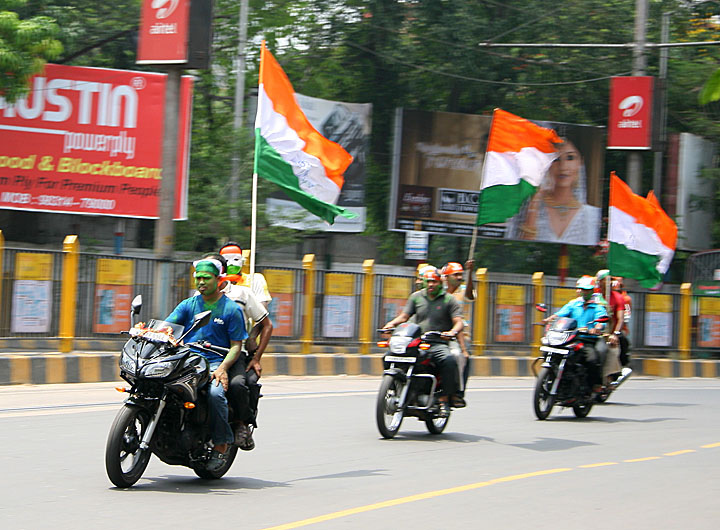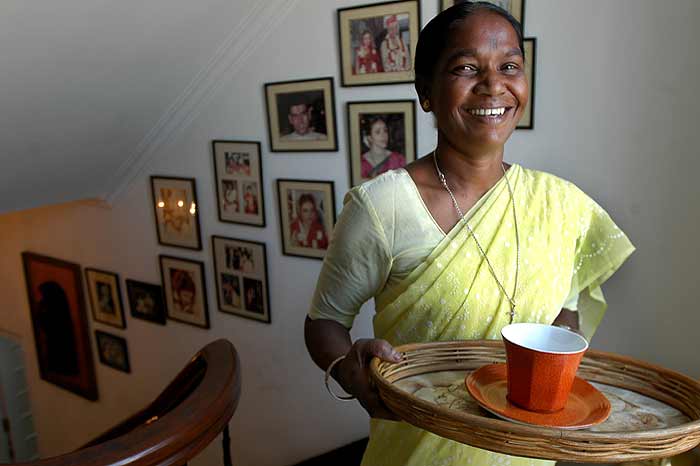Jatin Sharma wonders: if all of us really want change, why can’t we just join politics and be the change?
 Ever wondered what kind of job you always wanted? Ever wondered about the things that made you decide whether you wanted to join a field or not? Ever wondered about the things that would drive you to make that one job your whole life, your identity, your source of earning and your passion?
Ever wondered what kind of job you always wanted? Ever wondered about the things that made you decide whether you wanted to join a field or not? Ever wondered about the things that would drive you to make that one job your whole life, your identity, your source of earning and your passion?
I have always decided my career based on two things: My interest, and earning from it, plus the respect associated with it.
So let’s talk about the most neglected job in the world. No one in my country wants it or wants to be a part of it. It’s one of the jobs that has a lot of respect attached to it, but it’s not a respectable job any more. The earning is good and sometimes, the best. But it suffers from nobody being interested in it.
The job I’m talking about is: the job of running our country.
Ask yourself: how did you get interested in a particular field? Was it because someone in your family was a part of it, or because you had an awesome professor from the same field who taught you about it very well? The exposure towards a particular field always decided your inclination towards it.
So the whole point I’m trying to make is that although becoming a politician is considered to be the worst job, it is not. We hate our politicians, but we are not ready to replace them. If we want to change the world, we just become journalists who think that by writing about it, change will knock on our doors. Why are we not teaching our kids about politicians being good, too? Why are people not telling stories about how politics and politicians are meant to be? Why are we perpetuating the myth that politicians are people who only participate in scams?
Human beings fight for power and money and respect. A politician has the power to change the world, he can earn good money, and the respect for the people who bring a change in their area is incredible. So why is it that everyone compromises with a less powerful job, like becoming a doctor, journalist or an engineer? Why is no one taking up one of the most lucrative jobs in the country?
It could be because ignorance is the devil that kills you before you take your first step. People in my country are ignorant about how to run their country. We don’t know how to bring about a change. We are so ignorant about the systems in our country that we just try to ignore them by saying, “Let it be, nothing is going to change.” But really, do you believe that nothing will change if you want to change it?
I think the first step that should be taken is by asking all our politicians to come and speak to students about their experiences of running the country. Rahul Gandhi, Sonia Gandhi, Atal Bihari Vajpayee, Shashi Tharoor, Laloo Prasad Yadav, everyone should be given a mandatory notice to teach Politics and the problems they face as case studies in different schools. They should talk about how they get respect and how they are hated and how it is difficult to be practical while running a country.
Civics and Political Science should not be taught as laws, but in a way that seems more practical. It should be glamourised a bit more. All the major politicians of the world should come here and talk about politics in their country. It should not be just another photo opportunity for them, but a serious teaching assignment. They should speak about the problems they faced. Political Science should be taught as Political History; imagine having the chance to hear Barack Obama talk about what he went through when he ordered the killing of Osama, or how he faced the recession in his country and how he handled it. More to the point, politicians should talk about how they said ‘no’ to corruption.
In fact, the Government should have a degree for politicians – a Bachelors of Leaders in India or Diploma in Netagiri or Masters in Running India. The kind of respect and the power that this job holds should make people see that it is equivalent to being a CEO of a company. Students should be given assignments where they must come up with Bills and do a market research on why they are proposing a certain Bill.
Let the discussions happen and make them more about the future. Talk about the scams in textbooks and embarrass the hell out of the politicians who have been involved in them. Talk about the success stories of public figures and leaders who have brought a positive change in the society and for the country.
It doesn’t have to be boring. Why does politics have to be a name that brings out only negative emotions? Why does a Legislative Assembly or a Rajya Sabha or a Lok Sabha carry out its work in a manner and language nobody understands? They could be fun. Have workshops where people are trained for discussion and everyone works like in Parliament. Have books that speak about the blunders of politicians.
Make it more interesting. Make it glamourous. Make it contemporary.
If you want to serve the community, this is the best opportunity. Take this job. It’s now or never.
Jatin Sharma is a media professional who doesn’t want to grow up, because if he grows up, he will be like everybody else.
(Featured image courtesy thekissof.wordpress.com)
